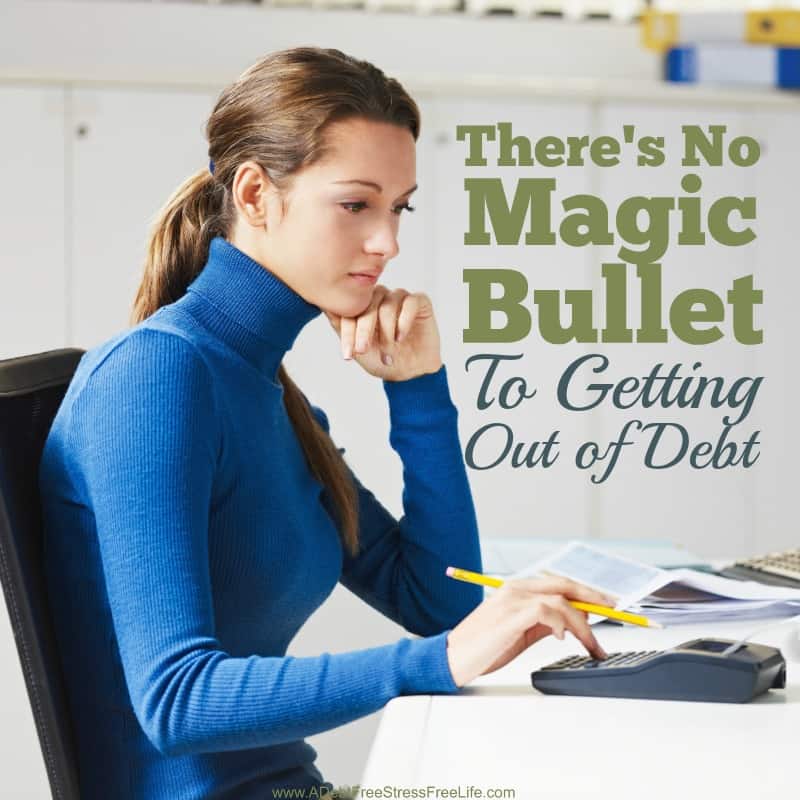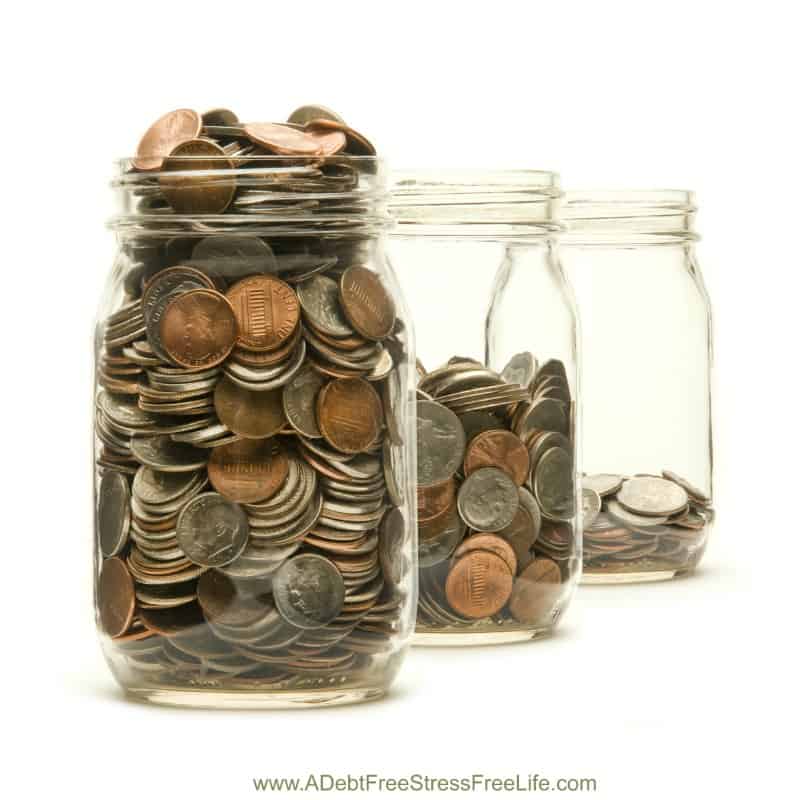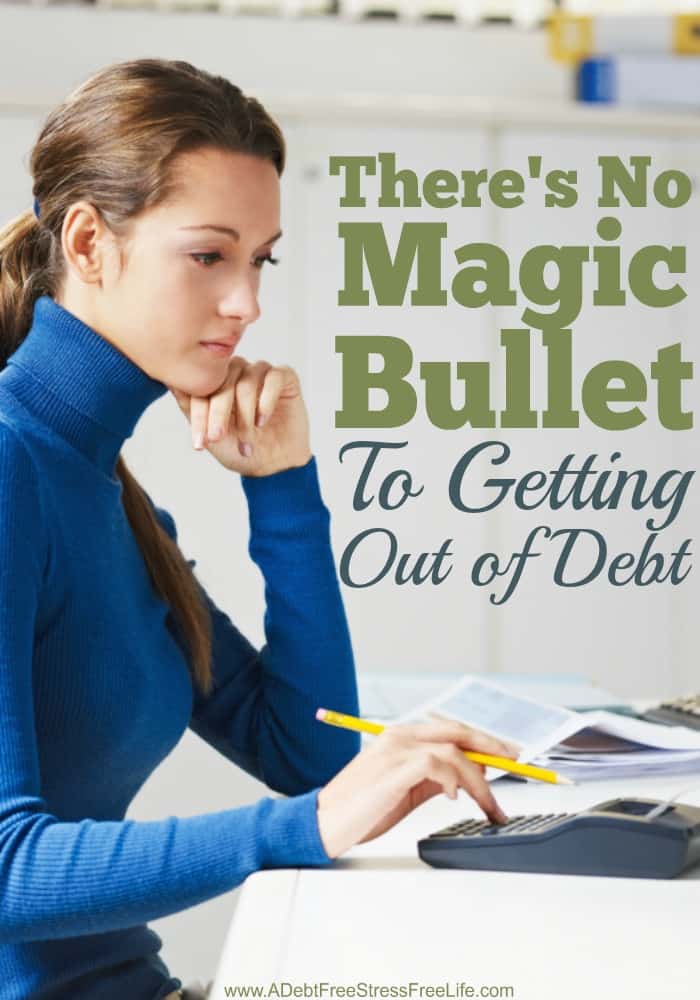A Mess Free Life may collect a share of sales or other compensation from the links on this page.
The other day I was perusing through self-published authors on Amazon and came upon a person I know from the blogging world. She had written a couple of eBooks about getting out of debt and money management. I headed to the reviews and saw a less than stellar review and decided to read it.
In essence, the person was complaining that there wasn’t anything new in her book. All advice that had been given before.
It got me thinking about people’s desire to get out of debt and how so many are looking for the silver bullet, the magic pill to end their financial worries.
The truth of the matter is there is nothing new out there when it comes to getting out of debt. The principles most of us finance and money expert bloggers write about come from tried and true practices of getting out of debt.
Did we wish there was a magic bullet out there when we were struggling to get out of debt? You bet we did, but we also realized after many failed attempts that it would take good old-fashioned tried and true methods to get out of debt and stay out of debt.
Table of Contents
The Strategy’s To Get Out of Debt
If you’re serious about getting out of debt, you need to know a few key strategies to be successful.
1. Adopt The Right Mindset
Getting out of debt is a journey and the best vehicle to make the journey smooth is to adopt the right mindset. I’m not suggesting that you just put on a happy face, but I am suggesting that you adopt a “can do” attitude. If you see getting out of debt as a painful, slow and long process – then guess what? It will be just that. If you instead see it for what it is, your personal journey to financial freedom, any bumps in the road will be better managed.
Read: The 30 Day Love Your Money Mindset Challenge
2. Establish A Budget
You won’t be able to see how best to utilize the funds you have unless you develop a budget/spending plan. Determining where your money is being allocated each month lets you precisely determine how much will be available to you for debt pay off. If you don’t map it out, you’ll often find yourself short on the cash needed to pay the debt. Take the time to develop your spending plan each month so you can track your progress.
Read: Create A Budget That Bends And Finally Stick To Your Plan
3. Track Your Spending
Tracking your spending is the number one way to reduce your expenses. When you see how you spend money, and you’re trying to reduce debt, it becomes the tool that lets you see how much money you’re wasting each month on frivolous purchases. I’ve told this story before but it bears repeating. When I was starting down the road to getting out of debt, I was still grabbing a morning coffee and bagel. When I started tracking, I saw my purchases were costing me a whopping $1200 a year. I immediately started making coffee and bagels at home. If you do none of the other things, at least, start with tracking. It will open your eyes!
Read: How To Start The Month Off the Right Way With Your Finances
4. Convert To Cash
Converting to cash is another awesome debt reduction tool. Paying with cash creates a different psychological experience for the spender. You don’t want to part with the money. Therefore, you scrutinize your purchases more than if you paid with a debit or credit card. The result? You spend less and have more money available to pay off debt.
Read: Good Money Habit #8 – Start Using Cash
5. Use The Snowball Method To Pay Off Debt
Commit to using the snowball method of debt reduction. If you make the commitment to use this method, you’ll be less likely to use the money available for a card that has been paid off for something other than debt reduction. You’ll know as soon as a card is paid off you have more money available to apply to the next piece of debt.
Read: How To Stay Out of Debt
6. Start Saving Immediately
Most of us got into debt through a combination of impulse spending and emergency situations we didn’t have the cash to cover. If you start saving now and build your emergency fund, you’ll never have to revert to using credit to handle an emergency ever again. That’s the power of saving as a means of getting out of debt. You build that fund so you can forever be prepared for the unexpected.
Read: The 6 Steps To Saving As A Means Of Getting Out Of Debt
Getting out of debt is a mere series of steps when used in combination will help you achieve financial freedom. There’s no secrets, no silver bullet or magic tool that somehow makes it easier or faster. It’s just a series of tried and true methodologies geared towards helping anyone get out of debt once and for all.



